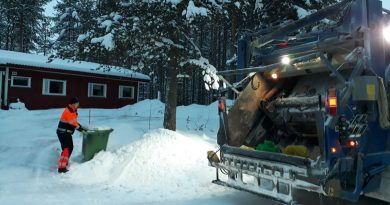Tarquti Energy, Hydro-Quebec deal important step towards green energy for Nunavik, Inuit leaders say
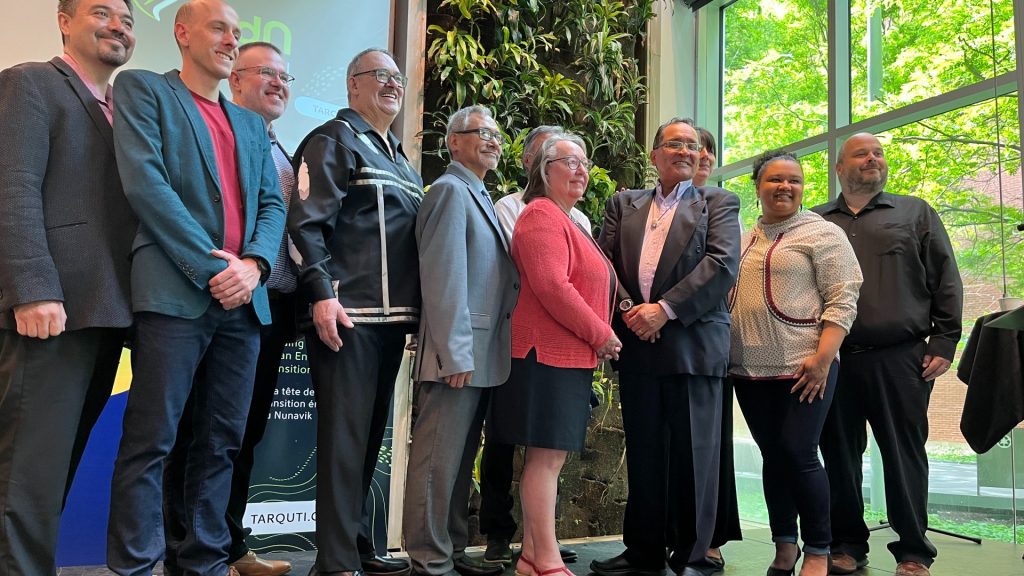
MONTREAL, Qc.—Hydro-Quebec and Tarquti Energy Inc. announced a new agreement on Monday to develop green energy across Nunavik, something Inuit leaders say will be transformative for the region.
“We have to find energy alternatives for the North,” Pita Aatami, President of Makivik Corporation, the Inuit land claims organization in Nunavik, told Eye on the Arctic at the announcement. “We’re living through environmental changes every day with changing weather and loss of sea ice and we want to do our part.
“We’re not waiting for anybody.”
Sheila Watt-Cloutier, a longtime Inuit rights and climate activist, who gave a speech at the announcement, said the partnership was another important step with Inuit deciding for themselves what will work best in their homeland.
“It makes such a difference when it’s Inuit ownership working with the community,” Watt-Cloutier said in an interview. “The actual decision making will come from each community—not the region—but each individual community.”
Getting off diesel
Nunavik, the Inuit region of Arctic Quebec, has 14, fly-in only, communities, that are off the provincial electrical grid.
All Nunavik communities are reliant on diesel, fuel that’s shipped into the communities once a year.
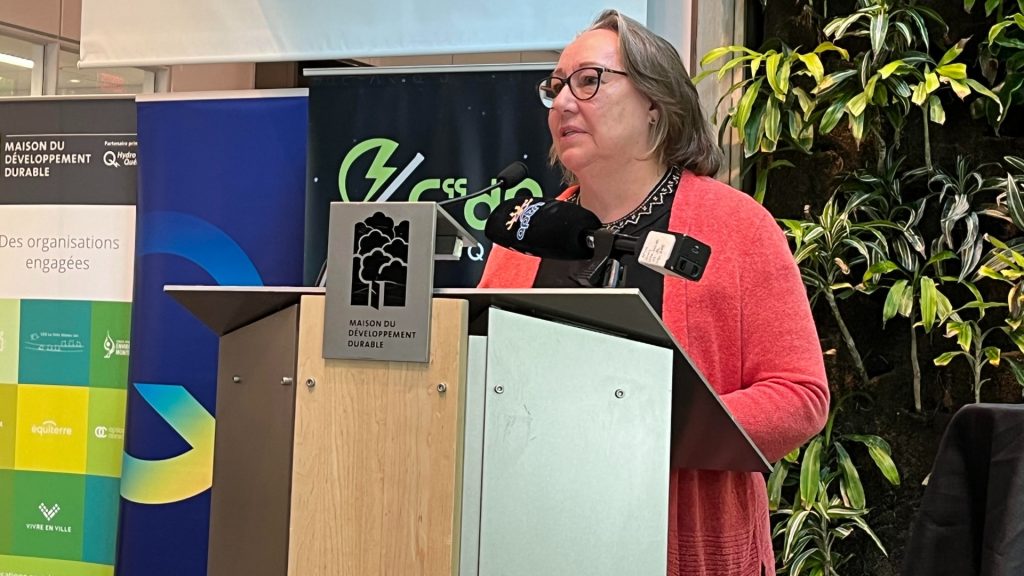
Diesel is a highly polluting fuel which also produces greenhouse gases that contribute to climate change. In addition, once it arrives in the North, it also ends up being significantly more expensive than the in the South.
Monday’s agreement makes Tarquti the partner for Hydro-Quebec for Nunavik renewable energy projects.
“This agreement is tangible proof of our plan to support Indigenous communities that wish to take charge of their development projects, and we will offer our support and expertise along the way,” Sophie Brochu, the president and CEO of Hydro-Quebec, the public utility in responsible for electricity generation and distribution in the province.
Solar, wind power, promising for Nunavik, says company
Tarquti Energy Inc. was incorporated in 2018 with a view towards the long-term development of renewable energy in the region that would be tailored to each of Nunavik’s villages.
Work is already underway to evaluate the needs and projects best suits the different communities.
Wind masts, measurement towers that gauge windspeed, were installed in five Nunavik communities in 2021 to take measurements over a two-year period. Those towers will come down in 2023, with towers then set up in other communities that want them.
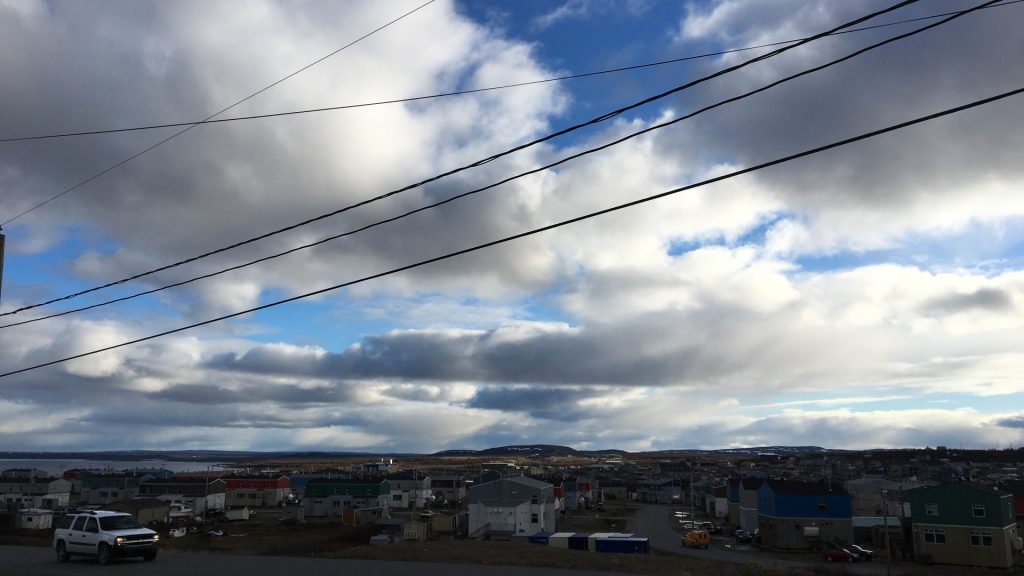
“Solar is a very interesting technology—not in November and December obviously when there’s no daylight to harvest—but at this time of the year in Nunavik with the reflection of the sun on the snow,” Joë Lance, the general manager for Tarquti, said. “Because the panels stay cold, their performance in the summer the is even better, so solar energy is quite promising.”
Through the new agreement, Hydro-Quebec will also be sharing information and experience from a solar panel project they’ve installed in the Nunavik community of Quaqtaq.
“Solar energy and wind energy, coupled with storage, are the existing technologies that we think can be done [in Nunavik],” Lance said.
Approach tailored to each community
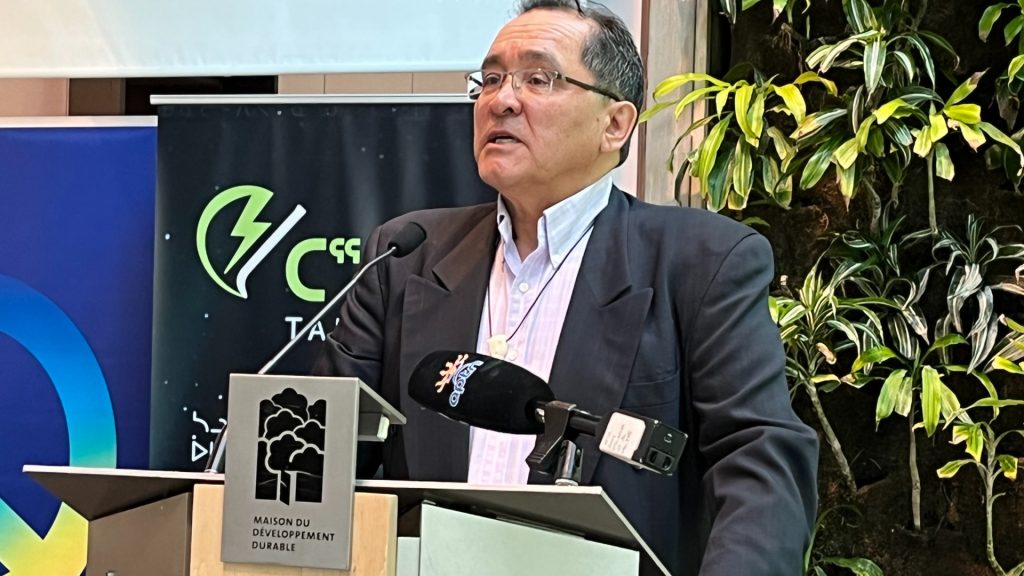
Makivik and Tarquti stress that the energy projects will be tailored to the environment and the needs of each individual community.
“It’s very important because these communities have different needs,” Aatami said.
“Landholders will be a key players because they know the communities and where to put things for the least impact.”
Write to Eilís Quinn at eilis.quinn(at)cbc.ca
Related stories from around the North:
Canada: Community in northern Quebec to make the jump from diesel to hydroelectricity, CBC News
Finland: Lapland among regions not in favour of wind power compensation for eastern Finland, Yle News
Norway: Will the green transition be the new economic motor in the Arctic?, Eye on the Arctic
Sweden: Wind farm delays in northern Sweden could hinder green revolution, Radio Sweden
United States: Alaska’s Northwest Arctic Borough gets $2 million tribal energy grant, Alaska Public Media



